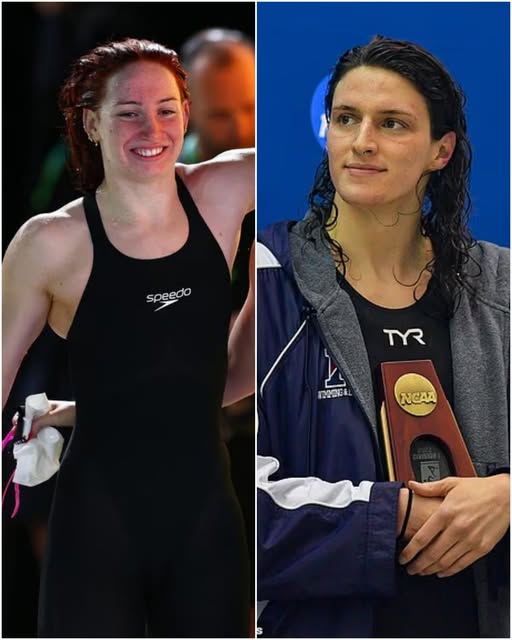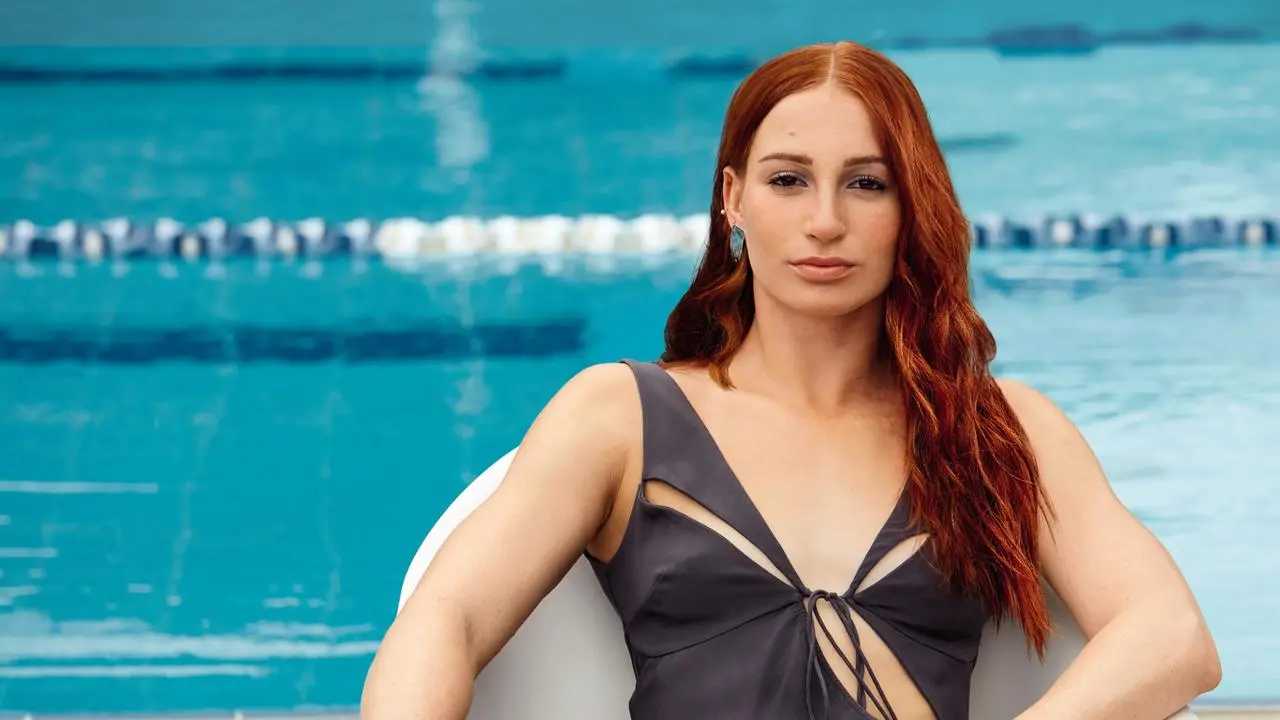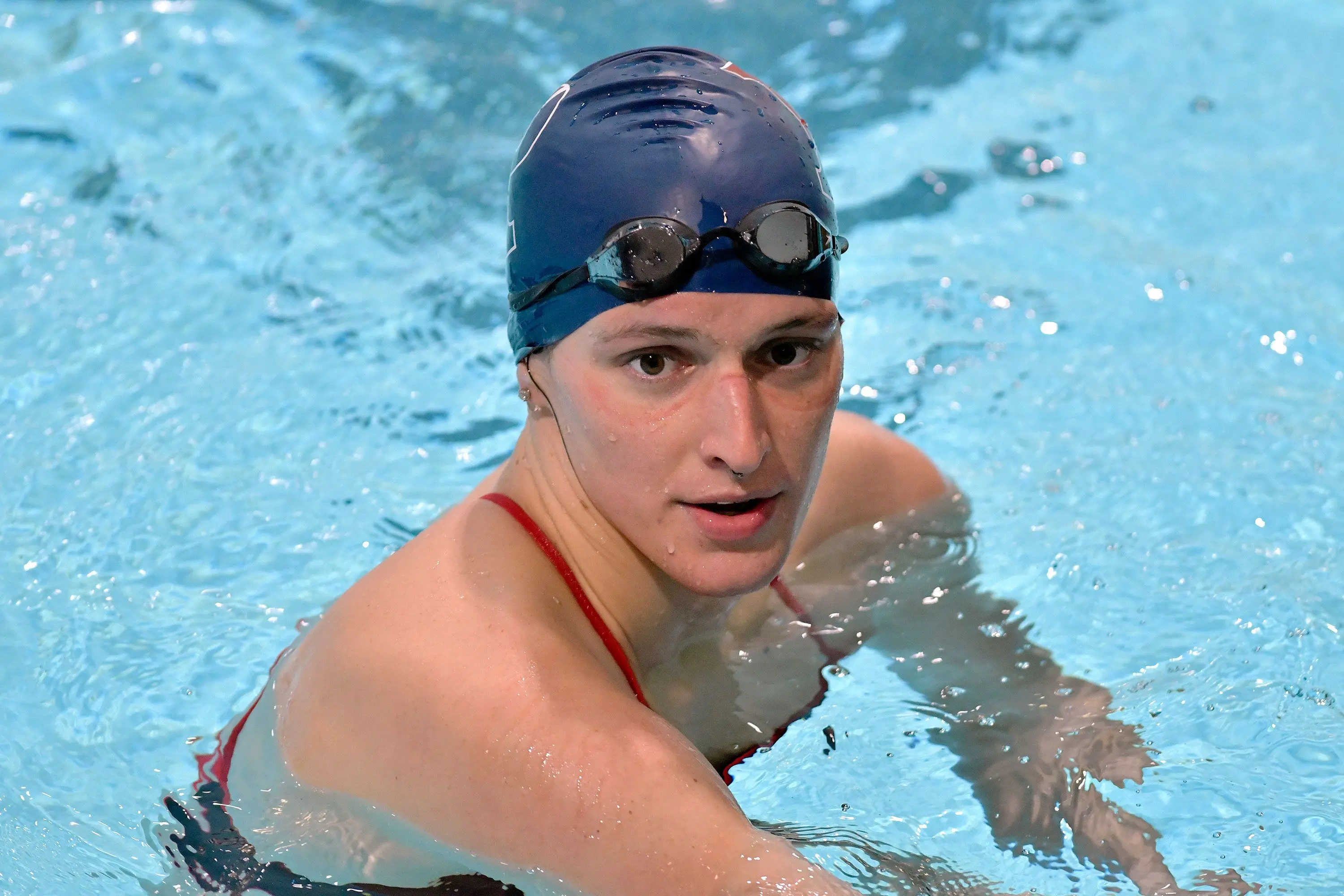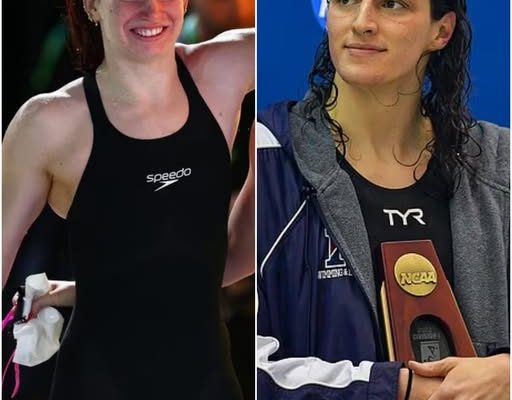
“A few words saying ‘I am a woman,’ and some documents that can be forged — does that make you a WOMAN?” Mollie O’Callaghan’s fierce words thundered across social media, igniting a global firestorm over fairness, biology, and identity in women’s sports.
The 20-year-old Australian swimming sensation, known for her calm demeanor and record-breaking speed, unleashed her fury as Lia Thomas continued to push for recognition and privileges within women’s categories, sparking widespread outrage among female athletes worldwide.
Mollie, joined by several Australian female swimmers, reportedly signed a bold declaration vowing to retire permanently if Lia Thomas were granted any special rights or advantages designated for women under international swimming regulations.

The explosive statement quickly sent shockwaves through the sports community. Fans, analysts, and officials were left reeling, as the standoff reignited one of the most volatile debates in modern athletics — the collision between gender identity and competitive fairness.
Sources close to the swimmers confirmed that discussions had been ongoing for months, but Thomas’s recent comments — insisting that trans women should be treated “exactly the same” as biological women in all sports contexts — pushed many to a breaking point.
O’Callaghan’s team released a brief yet powerful statement emphasizing respect for all individuals but rejecting what they described as “biological denialism” in elite competition, asserting that physical advantages cannot be erased through hormone therapy alone.
Within hours, international media outlets picked up the story. Headlines dominated sports pages in Australia, the UK, and the United States, painting Mollie as both a defender of fairness and a lightning rod for controversy.
Online reaction was immediate and intense. Supporters hailed her as courageous, saying she spoke aloud what many female athletes were too afraid to voice. Critics accused her of intolerance and oversimplifying a complex human rights issue.

Several federation officials reportedly warned that failing to act could result in mass withdrawals from future women’s events, including the upcoming World Championships — a devastating prospect for the sport’s credibility and unity.
Meanwhile, Lia Thomas, the American swimmer at the heart of the controversy, remained largely silent, releasing only a short statement reaffirming her belief that “trans women are women” and that equality in sport must be non-negotiable.
Medical experts were quickly drawn into the debate. Reports circulated citing studies that hormone replacement therapy reduces but does not eliminate male physiological advantages, such as lung capacity, bone structure, and muscle density.
This growing body of evidence fueled Mollie’s argument, with many pointing to scientific limitations of gender-transition treatments as proof that policy must prioritize biological integrity in competition.
The public conversation soon expanded beyond swimming. Athletes from cycling, track, and weightlifting weighed in, arguing that their sports faced similar ethical challenges when balancing inclusion with fairness.
Former champions voiced support for O’Callaghan’s stance, warning that ignoring the issue could destroy decades of progress in women’s sports by erasing the category’s competitive meaning altogether.
At the same time, LGBTQ+ advocacy groups condemned the backlash as dehumanizing. They accused sporting institutions of weaponizing biology to exclude transgender people from participation and called for “compassionate reform rather than discrimination.”
Caught between these two opposing forces, the International Aquatics Federation faces an unprecedented decision — one that could define the future of gender policy in sport. Their emergency session is expected to last for days.
Australian media framed Mollie’s stand as an act of rebellion and courage. Her words — “Does that make you a woman?” — have since been replayed millions of times, becoming a rallying cry for athletes demanding biological boundaries in competition.
The intensity of the response suggests that this conflict is far from over. Whether the federation sides with inclusion or fairness, it risks alienating half its athletes — and possibly reshaping the entire landscape of international women’s sport.
For Mollie O’Callaghan, however, the line seems clear. “We trained our whole lives to compete fairly,” she reportedly told teammates. “If that fairness disappears, then what’s left to fight for?”
As the world watches, the pool has become more than a sporting arena — it’s the stage for a global reckoning over what defines womanhood, justice, and equality in the modern age.


